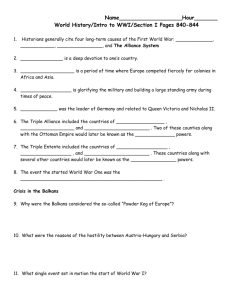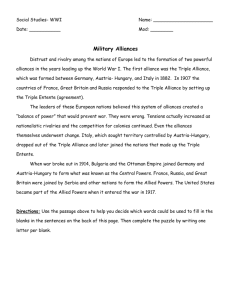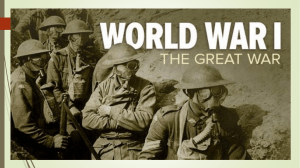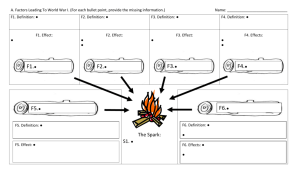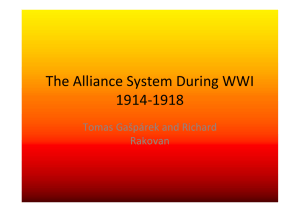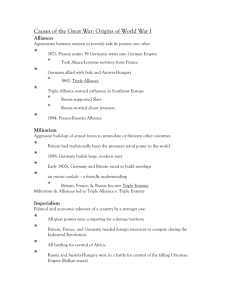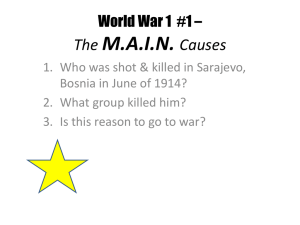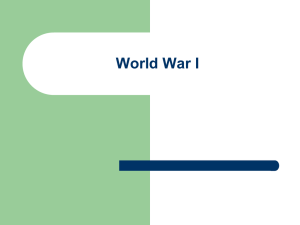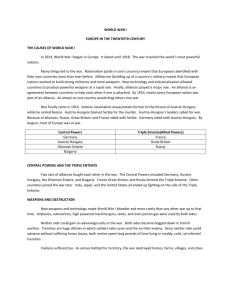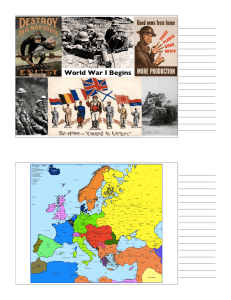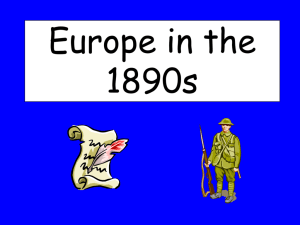File
advertisement
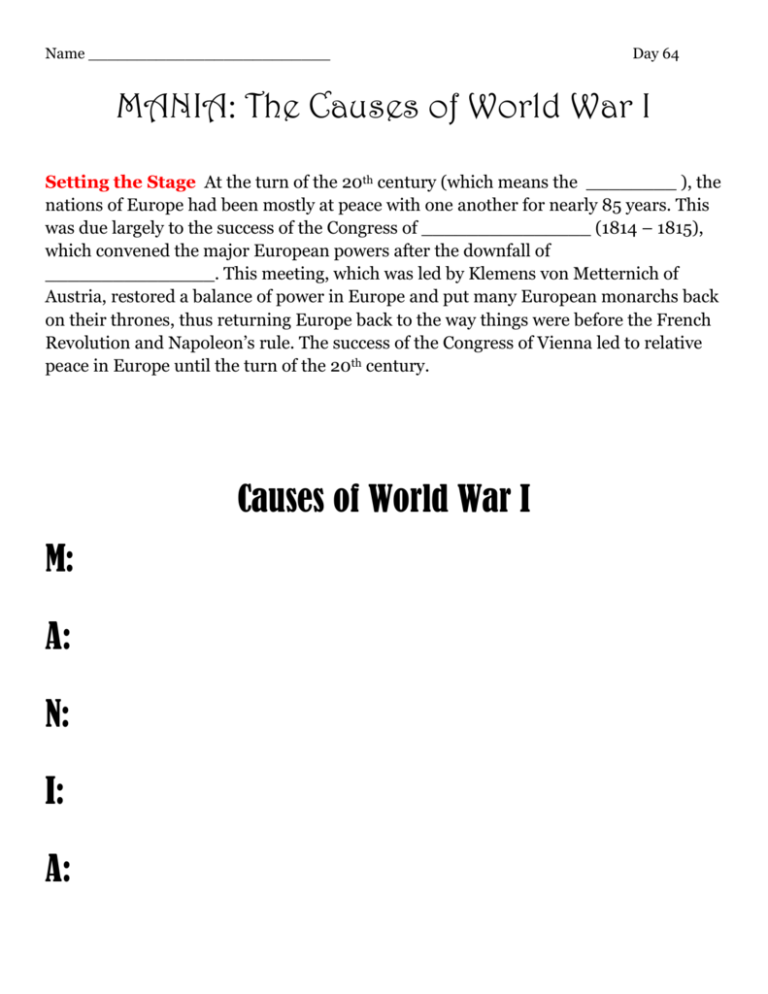
Name _________________________ Day 64 MANIA: The Causes of World War I Setting the Stage At the turn of the 20th century (which means the ________ ), the nations of Europe had been mostly at peace with one another for nearly 85 years. This was due largely to the success of the Congress of _______________ (1814 – 1815), which convened the major European powers after the downfall of _______________. This meeting, which was led by Klemens von Metternich of Austria, restored a balance of power in Europe and put many European monarchs back on their thrones, thus returning Europe back to the way things were before the French Revolution and Napoleon’s rule. The success of the Congress of Vienna led to relative peace in Europe until the turn of the 20th century. Causes of World War I M: A: N: I: A: Militarism The nations of Europe believed that to be truly great, they needed to have powerful militaries. The policy of glorifying military power and keeping an army prepared for war was known as militarism. Having a large and strong standing army that was ready to mobilize at a moment’s notice made citizens feel patriotic. Alliances Growing rivalries and mutual mistrust had led to the creation of several military alliances among the major nations of Europe as early as the 1870s. Between 1864 1871, Prussia's blood-and-iron chancellor, ___________________, freely used war to unify Germany. After the Franco-Prussian War, he believed that France was his greatest threat to maintaining peace. In 1879, he formed the Dual Alliance between Germany and Austria-Hungary. Three years later, Italy joined them, thus forming the Triple Alliance, or the Central Powers. When Kaiser Wilhelm II became leader of Germany in 1888, he was eager to show the world just how mighty Germany had become. The army was his greatest pride. "I and the army were born for one another," Wilhelm declared shortly after taking power. Wilhelm let Germany's treaty with Russia lapse (end) in 1890. Russia responded by forming a defensive military alliance with France. Next, Wilhelm began a tremendous shipbuilding program in an effort to make the German navy equal to that of the mighty British fleet. Alarmed, Great Britain formed an entente, or alliance, with France, and then another entente with both France and Russia, thus forming the Triple Entente, or the Allied Powers. By 1907, two rival camps existed in Europe. On one side was the Triple Alliance-Germany, Austria-Hungary, and Italy. On the other side was the Triple Entente--Great Britain, France, and Russia. Nationalism Nationalism, or a deep devotion to one's nation, can serve as a unifying force within a country. However, it can also cause intense competition among nations, with each nation thinking it is better than the other and each one seeking to overpower the other. By the turn of the 20th century, a fierce rivalry had developed among the Great Powers of Europe: Germany, Austria-Hungary, Great Britain, Russia, Italy & France. This increasing rivalry stemmed from a few different sources: competition for raw materials and markets (see Imperialism below), and territorial disputes. Imperialism Throughout the 1800s, the nations of Europe competed fiercely for colonies in Africa & Asia. This quest for colonies, raw materials, and new markets to sell their products to sometimes pushed European nations to the brink of war. As European countries continued to compete for overseas empires, their sense of rivalry and mistrust of one another deepened. Assassination! In August 1914, the heir to the Austro-Hungarian throne, Archduke Franz Ferdinand and his wife, Sophie, were shot point blank while visiting Bosnia, a country in the Balkan territories in Europe. This was the shot that rang throughout Europe. It triggered the delicate system of alliances to go into action and mark the beginning of World War I in Europe. 1. What were the major causes of WWI? (Think: MANIA!) 2. Which countries made up the Central Powers (Triple Alliance)? 3. Which countries made up the Allied Powers (Triple Entente)? 4. Look back at the map of Europe in 1914. Why might the Central Powers be at an automatic disadvantage in WWI? 5. How might these alliances lead to all-out war in Europe? 6. Why might nationalism and imperialism lead to war in Europe? 7. What was the spark that was the immediate cause of WWI in Europe?

